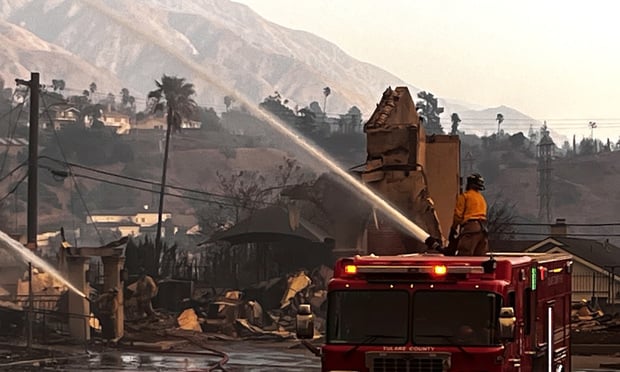Loans Still Coming Despite Terror Risks
Washington
A Federal Reserve Board survey showing that banks are still making commercial real estate loans for “high-profile” properties does not tell the whole story of the impact of problems in the terrorism insurance market, insurance industry officials contend.
Even if banks are making loans, there is still a major threat to the economy due to the lack of terrorism insurance, said Rodger Lawson, president of the Alliance of American Insurers in Downers Grove, Ill. The reinsurance market is still absent, he said, adding that if another attack occurs, and there is no reinsurance, the impact on the economy would be extremely serious.
Gary Karr, a representative of the Washington-based American Insurance Association, added that concerns over the lack of terrorism insurance, and the need for Congress to address this issue, are reflected in other quarters. He cited a recent report that Moodys Investor Service was planning to downgrade its ratings of commercial mortgage-backed securities unless Congress enacted terrorism insurance legislation.
In its April 2002 survey of senior loan officers, the Fed reported that 90 percent of domestic banks are rejecting loan applications for high-profile properties at about the same rate as before Sept. 11. Some 60 percent of foreign banks also reported that their rejection rate had not changed substantially.
In addition, the Fed reported that some 80 percent of domestic banks and more than 70 percent of foreign banks indicated little or no change in demand for loans to finance high-profile properties because potential borrowers were unable to acquire affordable terrorism insurance.
Generally, the Fed reported, about 75 percent of domestic banks said they require terrorism insurance on less than 10 percent of loans financing high-profile properties. Many banks, the Fed said, note that their standard commercial real estate loan contracts, especially for loans of less than $10 million, generally do not require terrorism insurance.
But Mr. Lawson said the question is whether developers are able to acquire affordable terrorism coverage. Based on what is known from developers, he said, the rate they are being asked to pay is prohibitive. The amount of new construction, Mr. Lawson said, is not where it would be if Congress enacted legislation establishing a federal terrorism reinsurance backup mechanism.
Reproduced from National Underwriter Property & Casualty/Risk & Benefits Management Edition, June 3, 2002. Copyright 2002 by The National Underwriter Company in the serial publication. All rights reserved.Copyright in this article as an independent work may be held by the author.
Want to continue reading?
Become a Free PropertyCasualty360 Digital Reader
Your access to unlimited PropertyCasualty360 content isn’t changing.
Once you are an ALM digital member, you’ll receive:
- Breaking insurance news and analysis, on-site and via our newsletters and custom alerts
- Weekly Insurance Speak podcast featuring exclusive interviews with industry leaders
- Educational webcasts, white papers, and ebooks from industry thought leaders
- Critical converage of the employee benefits and financial advisory markets on our other ALM sites, BenefitsPRO and ThinkAdvisor
Already have an account? Sign In Now
© 2025 ALM Global, LLC, All Rights Reserved. Request academic re-use from www.copyright.com. All other uses, submit a request to [email protected]. For more information visit Asset & Logo Licensing.








